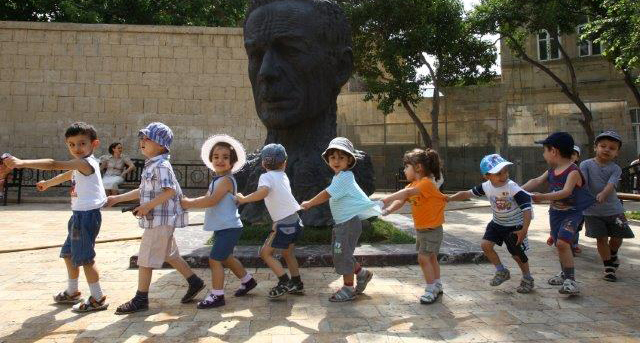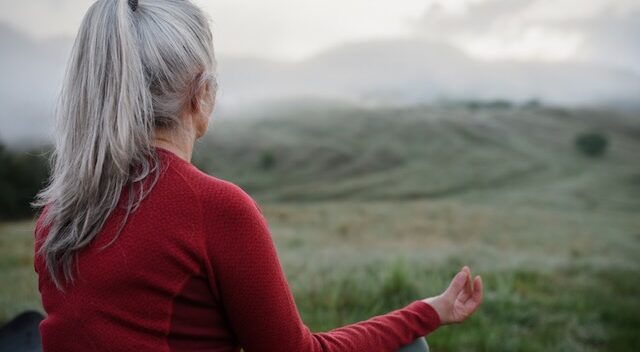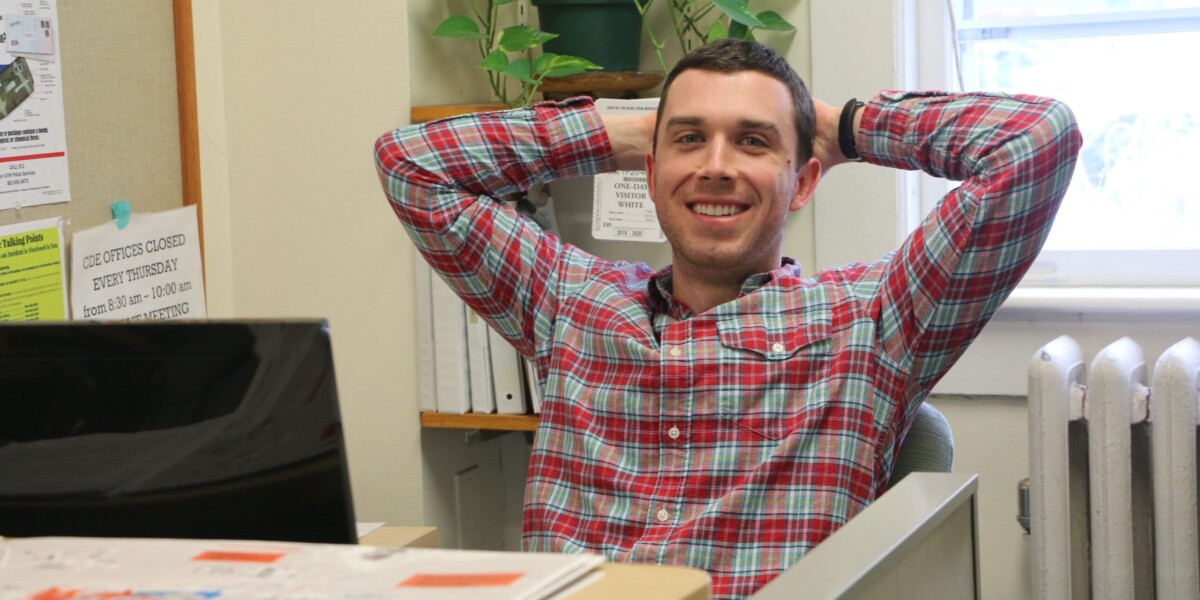When Sierra Poske shipped off to Azerbaijan for a two-year placement as a Peace Corps volunteer, she didn’t know what to expect. As a college athlete and member of the women’s tennis team, she was prepared to work hard and see her goals through to the finish. But this time, the playing field would be very different.
Joining the Peace Corps
“I left the country with an open mind and prepared to help my host country community in any way possible,” says Poske, who joined the Peace Corps in 2009 after graduating from Wake Forest University, where she studied English literature and anthropology. “I was a college athlete during my undergraduate experience, so I was only able to volunteer sparingly within the community during college,” she says.
Now the Peace Corps campus representative at UVM, Poske says the Peace Corps provided the best possible platform not only to volunteer and give back to the world, but also to live abroad and gain valuable experience in international development work.
The University of Vermont has one of the strongest legacies of Peace Corps participation in the nation and is currently a top five mid-sized volunteer producing university. Vermont is also the number one state per capita for Peace Corps volunteers. With its strong alumni base and global network of volunteers, new graduates and retirees alike are making the choice to volunteer abroad with the Peace Corps.
Getting Oriented
Poske’s assignment as an English teaching volunteer in the Republic of Azerbaijan came as a surprise. Located in the Caucasus mountain range on the Caspian Sea that was once under Soviet rule, Azerbaijan wasn’t on her radar. “When I received my placement letter, I had no idea what to expect,” she says.
Situated on the geographical border of Eastern Europe and Central Asia, Azerbaijan is a blend of Turkic and Persian cultures that is still heavily influenced by Russian culture. Having never been anywhere near that part of the world before, Poske says she was surprised to see how developed the capital city of Baku was compared to the rest of the surrounding country. There was a noticeable difference between urban and rural life.
On the Job
Teaching in a small primary school that served students in grades 1-10, Poske had her work cut out for her. Lacking central heating or air, the concrete school building where she taught was surrounded by other classroom buildings that were forced to heat the rooms with wood-burning stoves.
“In the winter, we actually had to crack the windows to let the smoke out of the classroom,” she recalls. “Teaching in that environment gave me a totally different experience. It challenged me to be creative and resourceful, and I learned a lot about myself in the process.”
Echoing a common message from Peace Corps alumni, the experience of working with access to fewer resources taught her to be more mindful, appreciative, and resourceful.
Poske especially enjoyed teaching the younger students. She worked to engage the students in new ways to make learning English more fun.
“I taught them to play ‘Sierra Says’ so they could learn action verbs and body vocabulary,” she says, adding that the game was similar to Simon Says. “It was fun to see the students really getting into it and enjoying the learning experience.” Using classroom games and engaging activities, she set a goal of helping students learn English in a way that was positive and interactive.
Career Preparation
In the process of teaching students, Poske learned a great deal about herself. “What I learned as a teacher in those classrooms will stick with me,” she says. Poske insists that as far as her professional career is concerned, the Peace Corps offered an excellent foundation for her to build her professional goals.
“My experience showed me how well I could operate in less-than-optimal circumstances,” she says. “I didn’t have all of the supplies that I would have in an American classroom but because of my experience teaching in Azerbaijan, I am more persistent and resilient, which are skills that will serve me in future employment.”
Beyond building character, working in the Peace Corps environment helped her learn transferable skills. As a teacher, she worked with diverse community partners to accomplish her goals and used different modes of communication to build support for her work. Whether volunteers are placed in a school or in an agricultural development project, each of the different project sectors enable volunteers to acquire experience in a new environment, working with diverse populations, and gaining applied-skills that transfer well.
Making Connections
Poske is now a Peace Corps Fellow graduate student, working toward her master’s degree in community development and applied economics at UVM.
Poske isn’t surprised that UVM alumni are so highly represented in the Peace Corps., “I think that the sense of community and connection are values that both UVM and the Peace Corps share. Both institutions strive to engage individuals in the community and it’s those connections that provide them with the strength and resiliency to successfully complete their missions.”
Still, while volunteering abroad is a very educational experience, she encourages students who are interested in service abroad to do their homework. “You may not know exactly what to expect, but it’s always better to be informed.” She emphasizes that it’s important to thoroughly research the organization or affiliated program that you’re interested in traveling with, as well as your intended destination, to make sure it’s a good fit.
“I believe that Peace Corps volunteers often come back having gained countless measurable and immeasurable skills and often feel like they received more in return for their two years of service than they ever could have given,” she says. “I am lucky to count myself in that category of volunteer.”
Want to Learn More?
For recent grads who are interested in pursuing a placement with the Peace Corps, there are great resources to get you familiarized with the Peace Corps program. Start by visiting the website www.peacecorps.gov. The information provided is useful and will help to get a better picture of volunteer placement locations, available projects, and Peace Corps alumni networks.
UVM is fortunate to host a Peace Corps office on campus during the academic year, so students can meet with an advisor and ask questions. Located in 207 Morrill Hall, prospective volunteers can drop in to learn more about the program.
If you’re interested in applying, applications are due by June 1 for early 2015 placements.




